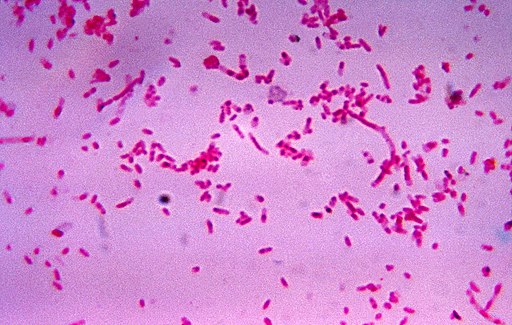There is a type of bacteria typically found in the mouth called Fusobacterium nucleatum that is associated with 50% of all colon cancers (see references below). This germ is mainly found in periodontal disease, but can be found in tonsillar infections as well as abscesses of the mouth and throat.
This bacteria is rarely found in the intestines of normal, healthy individuals. However, this microbe can be found in high concentrations in colon cancer which has led to concern that it may be a contributing factor for causing colon cancer. Further research has determined that Fusobacterium nucleatum is unlikely to cause colon cancer on its own, but can help promote cancer progression by stimulating cancer cells to be more aggressive. As such, mutations first lead to the creation of cancer cells and microbial infection is the second “hit” that promotes cancer progression.
Not counting some kinds of skin cancer, colon cancer is the fourth most common cancer in men and women. It is the fourth leading cause of cancer-related deaths in the United States. As such, any treatable factor that may help reduce colon cancer would have enormous impact in minimizing this deadly condition.
As such, if an individual is identified with a Fusobacterium nucleatum infection, it may be worthwhile to undergo a screening colonscopy at some point after recovery, especially if you are 45 years or older. Of course, even if you do not have a Fusobacterium nucleatum infection, you are still supposed to have a screening colonoscopy by this age.
Read more about screening colonoscopy recommendation.
References:
Fusobacterium nucleatum and colorectal cancer: From phenomenon to mechanism. Front Cell Infect Microbiol. 2022; 12: 1020583.Association between Fusobacterium nucleatum and patient prognosis in metastatic colon cancer. Sci Rep 11, 20263 (2021). https://doi.org/10.1038/s41598-021-98941-6
Fusobacterium nucleatum in colorectal carcinoma tissue and patient prognosis. Gut 2016;65:1973-1980.
Analysis of Fusobacterium persistence and antibiotic response in colorectal cancer. Science. 2017 Dec 15;358(6369):1443-1448.



No comments:
CLICK to Post a Comment